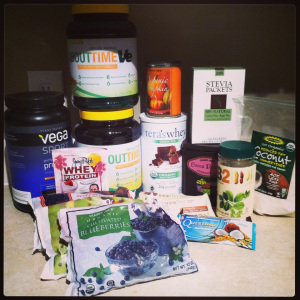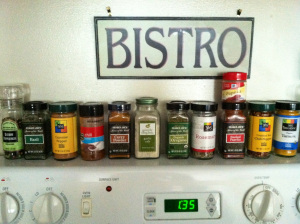As featured in the March 2014 issue of BossFit Magazine.
- The extent to which you deprive is directly related to the extent to which you binge. Naturally, when we tell ourselves something’s off-limits it’s all we want. With willpower drained, cravings run rampant and compensatory binges result. Preemptive cheats help “take the edge off,” and won’t necessarily aid in your fat loss, but used strategically, will not cause you to gain. Knowing that you can eat anything you want, anytime is liberating. Jill Coleman’s approach? Intermittent sampling: “Taste everything, finish nothing.”
- Weight loss does not equal fat loss. If calories are restricted, you will lose weight but not necessarily fat. Fat loss minimizes muscle loss, and changes body shape. Basal metabolic rate (BMR) accounts for over two-thirds of the calories burned at rest and muscle is a major determinant of BMR. Research shows that if you lose muscle on a diet, you’re 15-30% more likely to gain 20+ lbs. over the next two years aka the rebound yo-yo weight gain. Lift heavy, and keep your muscle!
- Calories matter, but hormones matter more. The key to caloric deficit and hormonal balance is this: eat less, exercise less OR eat more, exercise more. Where the calorie model has ingrained in us the eat less, exercise more approach, the hormonal model teaches us to eat more of the right things more often. With exercise, more is not always better; it is just more.
- Stress and sleep. Chronic high stress raises stress hormones and impedes fat loss. Build stress-reducing activities into your daily routine. We all have stress but instead of hating yourself for it, or placing blame elsewhere, remember you control your attitude and effort. Aim for 7-8 hours of quality sleep each night. Not feasible? Nap or meditate.
- Action beats intention. Intentions are meaningless until they are followed up with actions. Small actions over time can create big results, but inaction creates nothing.
- Nutrition = gross control. Exercise = fine control. If you only have thirty minutes, hit the kitchen not the gym. Be prepared. A diet high in protein, veggies (fiber) and water will balance hunger, energy and cravings and thus, hormones. Give yourself some wiggle room and practice letting good be good enough because good still gets results. If you can’t do it forever, you’re on a diet; you’re either ‘ON’ or ‘OFF.’ A lifestyle is sustainable over the long-term.
- Carb control. The amount of carbohydrate you need to sustain energy, and still get results, is based on your own unique metabolism. As a general rule of thumb, the whiter the starch the fewer the bites.
- Walking is not exercise, it is a necessity. Leisure walking lowers stress, reduces hunger (cravings, too?) and carries little concern for over training. If you can, walk outside. A little Vitamin D never hurt anyone, and the change of scenery is great to recharge.
- Focus on ONE thing and you will succeed. Small successes over time add up to be big wins. To think that you can successfully overhaul your lifestyle all at once is unrealistic. You can have everything, but not everything all at once.
- Consistency + enjoyment = success. Finding what works for YOU takes time, but fitness and nutrition are meant to enrich your life, not detract from it.
What do you struggle with most? Let me know in the comments below!

